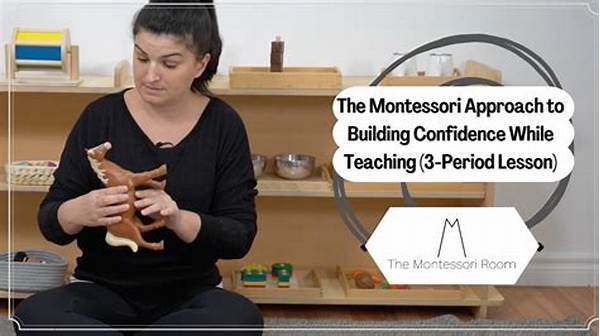Creating such an extensive and detailed article collection is quite a task. Here’s how you could potentially approach writing these articles, with some ideas for each section.
Read More : Surabaya Montessori School
—
In a world where self-assurance is golden, the Montessori approach shines as a beacon of hope for fostering confidence in young minds. Picture a classroom where children explore freely, empowered to make choices that resonate with their intrinsic interests. Here, confidence is not taught; it’s nurtured. It’s a magical place where mistakes are celebrated as learning opportunities, and individuality is cherished like a rare gem. The Montessori approach to building confidence is not just a teaching method; it’s a philosophy that transforms doubt into self-belief, transforming classrooms into arenas of discovery and growth.
Montessori environments are meticulously curated to encourage independence and cater to the developmental stages of a child. This freedom to make choices is central to building self-esteem. Instead of instructing pupils, Montessori educators guide them, enabling a child’s natural inquisitiveness to flourish. By stepping back, they allow children to develop independent thought processes and decision-making skills that form the bedrock of confidence. It’s an inspirational journey where children aren’t mere followers but enthusiastic leaders of their educational voyage.
The beauty of the Montessori approach lies in its universal efficacy. From the bustling streets of cities to the quiet edges of country life, its principles hold firm. Confidence is boosted by providing tools and allowing autonomy. As you watch your child explore this landscape, witness a transformation that’s more compelling than any sci-fi tale. The Montessori approach to building confidence is like a secret sauce that turns timid toddlers into daring doyens!
—
The Science Behind Montessori Confidence Building
The impact of the Montessori framework has been studied extensively, with research highlighting its positive outcomes on children’s confidence and development. A study published in a well-regarded educational journal demonstrated that students educated under the Montessori model exhibited higher levels of self-confidence compared to those in traditional educational settings. This is often attributed to the personalized learning paths encouraged within Montessori classrooms, which consider each child’s pace and style of learning.
The Role of Environment in Nurturing Confidence
The environment plays a significant role in the Montessori approach to building confidence. In Montessori classrooms, you’ll find child-sized furniture and easily accessible learning materials. These elements empower children to act independently, whether it’s choosing which puzzle to solve or grabbing a book from the shelf. Freedom within limits is the mantra; it encourages responsible choice-making while subtly guiding children toward desirable behaviors and learning outcomes.
Confidence thrives when children learn to manage their environments effectively, turning these mini victories into lifelong confidence. The classroom setting mirrors a miniature world, allowing them to practice and hone skills essential for personal and socio-emotional development. By reducing dependency and enabling self-service, Montessori’s design develops capable individuals ready to meet the world with poise and assurance.
—
9 Examples Related to Montessori Approach to Building Confidence
Empowering Young Minds with Confidence
Incorporating the Montessori approach to building confidence is not just an exclusive privilege of specialized schools but can be a valuable tool in every parent or educator’s handbook. To truly harness its potential, however, requires understanding its core tenets—the emphasis on autonomy, the role of a prepared environment, and the subtle art of guiding without dictating.
Cultivating Self-Confidence through Freedom
The cornerstone of the Montessori approach is granting freedom within limits. This principle allows children to engage deeply with materials and challenges that pique their interest. When children are free to explore and choose, they naturally develop a sense of competence and self-efficacy. Let’s imagine a child in a Montessori setting, choosing to work with building blocks after observing others make creative constructions. Given the liberty to engage, the child experiments, makes discoveries, and gradually builds the confidence to showcase their creation, proud and assured of their achievement.
Illustrations of Confidence in Montessori Method
A day in a Montessori classroom is filled with laughter, curiosity, and whispered discussions as children explore their interests. This environment of mutual respect and collaborative learning sets the stage for growing confident, capable individuals. The Montessori method supports emotional intelligence as much as academic skills.
Conclusion: Building a Confident Future
The Montessori approach to building confidence is indeed a journey of trust and respect, setting children on a path where they not only learn but excel and thrive with self-assurance. Encouraging autonomy, fostering curiosity, and supporting individual growth makes this approach a standout choice for those aiming to cultivate not only academic achievers but resilient and confident members of society. When children feel their efforts are acknowledged and respected, magic happens—they begin to believe in themselves. If given the chance, wouldn’t we all want to tread a path that leads us back to such confidence?
